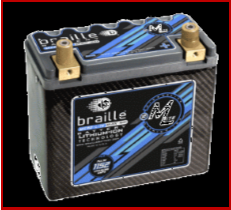 The U.S. Department of Transportation’s Federal Aviation Administration (FAA) on September 16 issued an emergency order to restrict and prohibit Braille Battery of Sarasota, FL, from offering to transport by air any lithium ion battery not in compliance with the DOT’s Hazardous Materials Regulations (HMR) or the International Civil Aviation Organization’s (ICAO) technical instructions.
The U.S. Department of Transportation’s Federal Aviation Administration (FAA) on September 16 issued an emergency order to restrict and prohibit Braille Battery of Sarasota, FL, from offering to transport by air any lithium ion battery not in compliance with the DOT’s Hazardous Materials Regulations (HMR) or the International Civil Aviation Organization’s (ICAO) technical instructions.
Braille is active in automotive performance circles for promoting lighter weight, expensive batteries. (FAA Issues Guidance on Exploding Samsung Galaxy Devices and FAA Fines Amazon $78K for Shipping Hazardous Materials)
Despite FAA warnings, Braille Battery failed to ship lithium ion batteries in accordance with “appropriate regulations and continued to offer for air transport lithium ion batteries that were not properly tested, violating the HMR.”
Further, the FAA determined that Braille Battery’s “overall conditions and practices constitute an imminent hazard.” If Braille Battery does not comply with this order, the company is subject to criminal prosecution as well as civil penalties of up to $179,933 for each violation, for each day they are found to be in violation.
The FAA notes that as a lithium ion battery manufacturer, Braille Battery is responsible for ensuring that any lithium ion battery it offers for transportation is properly tested for classification, packaged, marked and labeled prior to offering for transportation. In addition, Braille Battery, as a hazmat employer, must ensure that employees who perform functions regulated under the HMR are trained adequately.
The agency also issued a Safety Alert for Operators (SAFO) to warn the airlines about the risk that some Braille Battery lithium ion batteries could present when accepted and transported as air cargo. The SAFO recommends that operators implement their control measures to prevent Braille batteries from introducing this known risk into their systems. The SAFO includes a list of Braille battery models known to have been un-tested.

